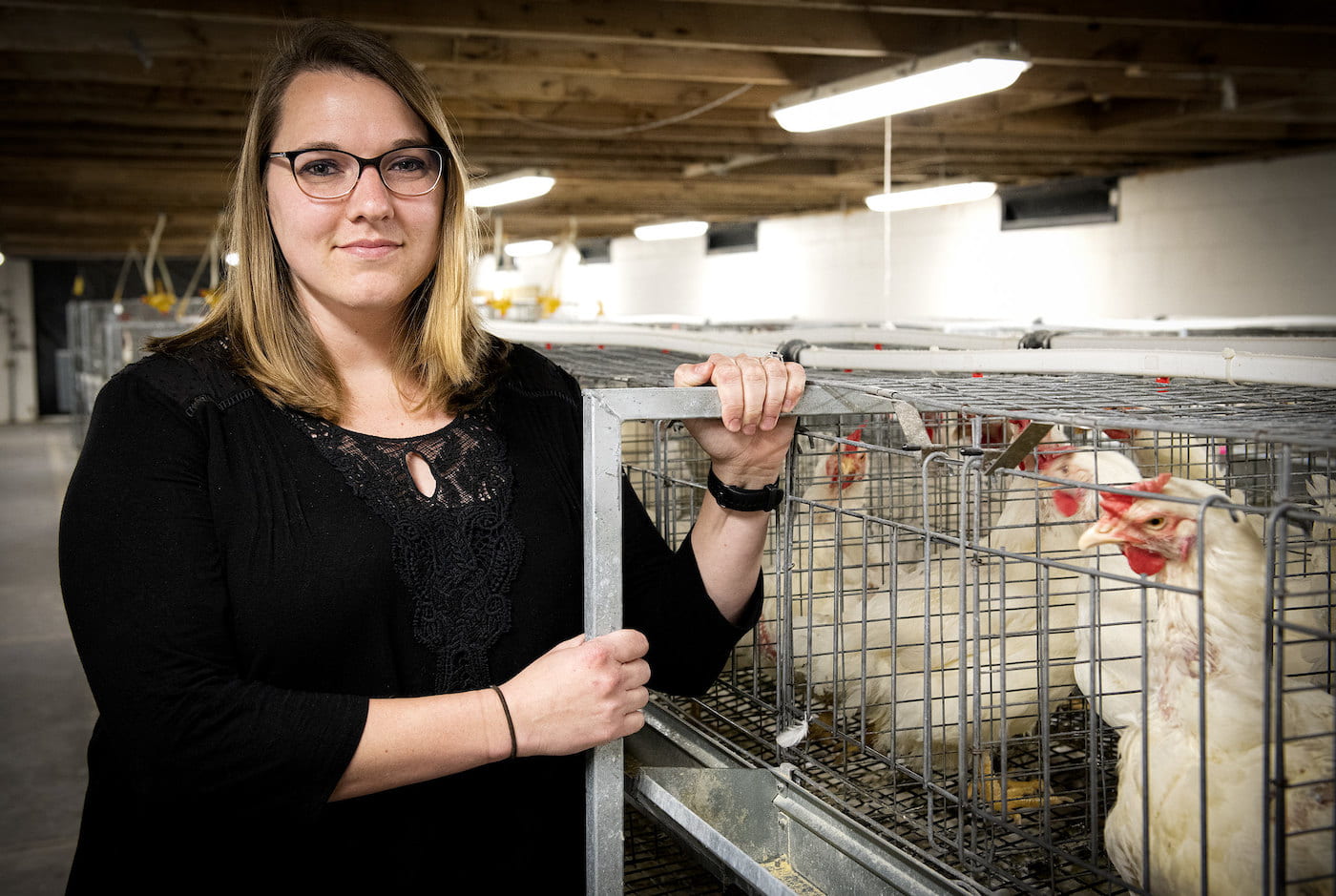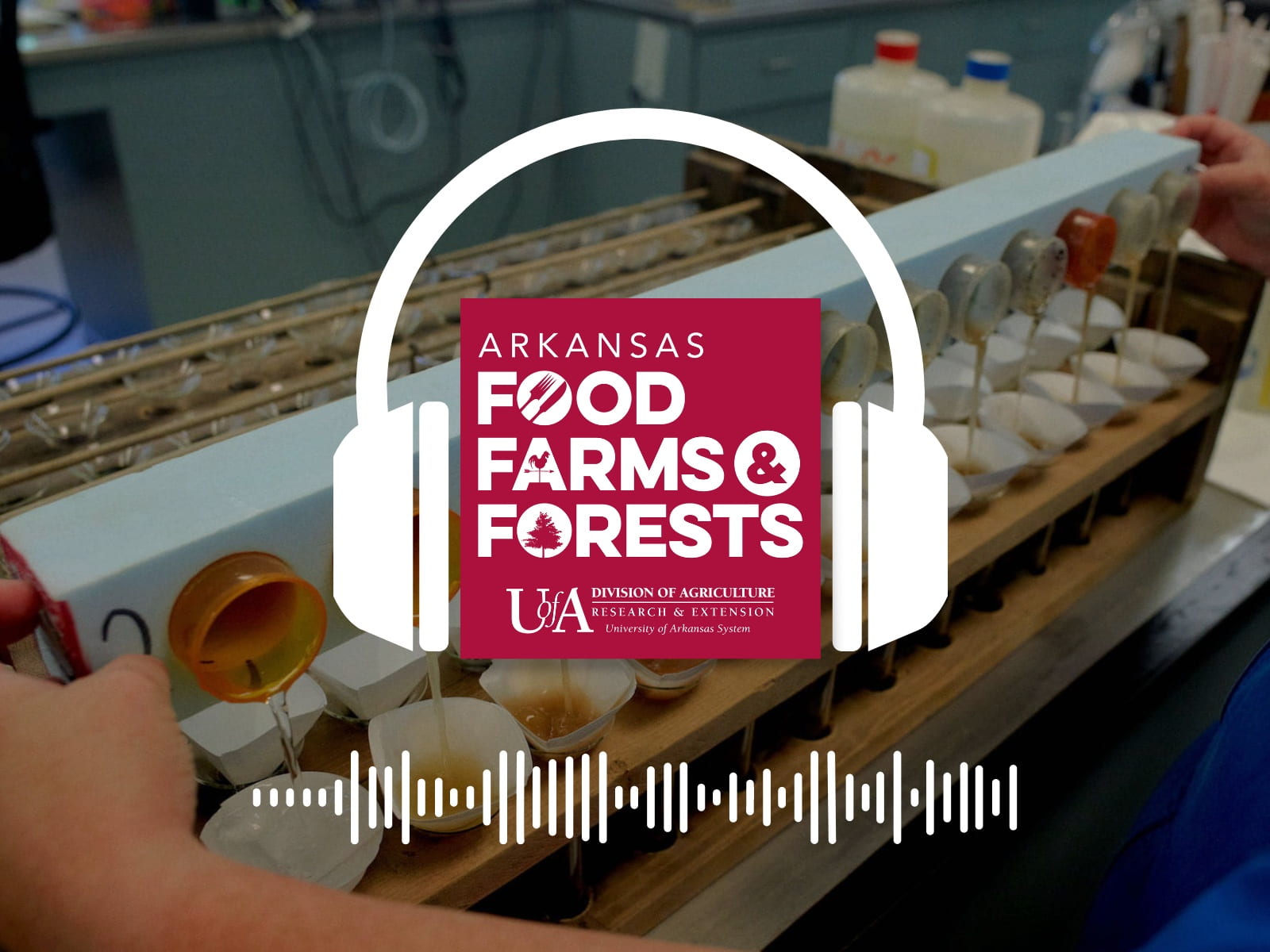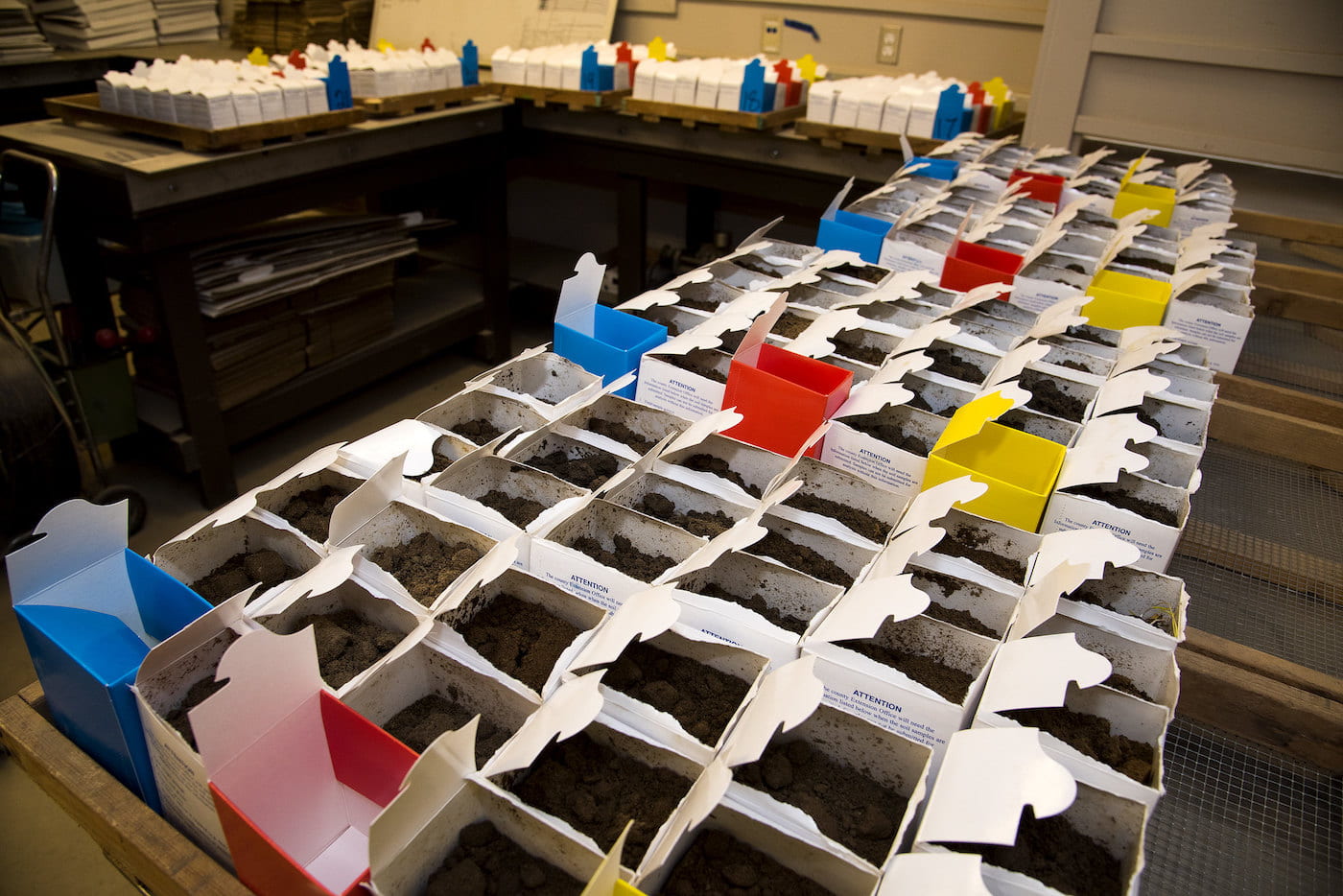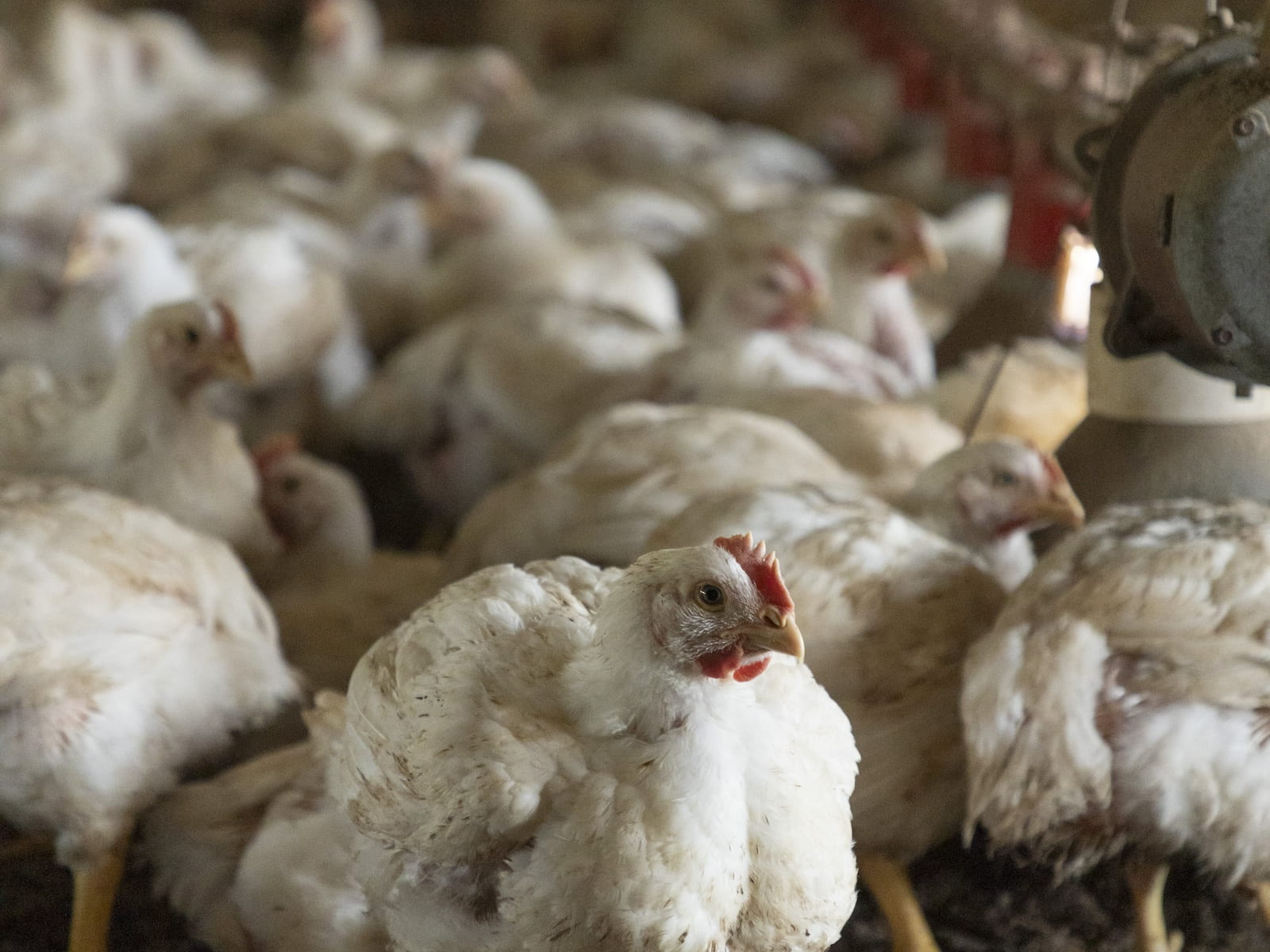Global Center for K-Food Promotes Korean Cuisine Research, Culture and Outreach
Global Center for K-Food established at AAES. Han-Seok Seo founder and director of center focused on innovation via Korean food.
By John Lovett – Jan. 26, 2024
FAYETTEVILLE, Ark. — Feb. 9 will see a celebration of Korean-American relations as the new Global Center for K-Food hosts an inaugural event to celebrate the Lunar New Year.
Han-Seok Seo, professor of sensory and consumer science for the Arkansas Agricultural Experiment Station, founded the Global Center for K-Food in December to promote innovation in food science and agricultural technology centered on Korean food.
The Lunar New Year event will take place from 11 a.m. to 1 p.m. in the Food Science Building, 2650 N. Young Ave., in Fayetteville. Because of space limitations, the event will be held over three, 40-minute sessions beginning at 11 a.m., noon and 1 p.m. Each session can accommodate about 35 people. For those would like to attend the event, please make reservations online.
The Global Center for K-Food is a part of the Arkansas Agricultural Experiment Station, the research arm of the University of Arkansas System Division of Agriculture.
“Our center is dedicated to playing an instrumental role in fostering diverse, healthy, and sustainable global food systems, underpinned by robust research, education, and outreach initiatives,” Seo said. “Diversity includes research methods and research populations, as well as research topics and interdisciplinary research projects.”
Seo said the center’s objectives include fostering collaborative research, especially food-related projects, between U.S. and Korean researchers and professionals, education and outreach, culinary diplomacy, and entrepreneurship activation.
Part of that education and outreach, he said, will be to conduct workshops, seminars and public events to raise awareness of the health benefits of the Korean diet, the innovations of food-tech and dining environment, and the impact of cultural diversity. Seo also envisions the center hosting international culinary events to bring together chefs, food enthusiasts and scholars “to showcase the richness of Korean gastronomy.”
Jeyam Subbiah, professor and food science department, said the Global Center for K-Food will foster innovation and collaboration in the food industry by developing Korean and fusion foods that cater to the diverse needs of consumers.
Faculty and graduate students in the department of food science come from various cultures, Subbiah pointed out.
“Through research, extension and producing a workforce exposed to dynamic international food trends, we support the global food industry,” Subbiah said. “This center will strengthen and add a distinct flavor to our portfolio, fostering innovation and collaboration in the food industry by developing Korean and fusion foods that cater to the diverse needs of consumers.”
By exploring Korean cuisine and its links to other cultures, Subbiah said food science students will learn how to develop fusion foods, “which combine the best of different culinary traditions.”
Korea and Arkansas
While Arkansas may not be as universally acknowledged for its Korean presence as some other states, Seo said Korean culture is woven into its fabric with such features as the American Taekwondo Association Headquarters, the Arkansas Korean War Veterans Memorial, and the MacArthur Museum of Arkansas Military History in Little Rock, and a growing community of Korean start-up companies in northwest Arkansas.
Seo, who first temporarily visited the United States in 2003, pointed out that 2023 was the 120th anniversary of the arrival of the first 102 Korean immigrants to the United States and the 70th anniversary of the alliance between the United States and the Republic of Korea.
“With no existing center dedicated to K-Food in the United States and beyond, this initiative, aligned with the 70th anniversary of the alliance, promises abundant opportunities for mutual growth in research, education, and culinary diplomacy,” Seo said.
The Feb. 9 event will recognize those historical numbers by offering 102 bowls of Tteokguk — a sliced rice cake soup — to participants. Tteokguk, a traditional Korean dish, is customarily savored during the Lunar New Year Day. Seo said the dish features “thinly sliced rice cakes simmered in a rich meat broth, garnished with julienned cooked eggs, tender marinated meat, and finely shredded dried seaweed, creating a harmonious blend of appearance, flavors, and textures.” Coincidentally, Seo’s office number in the food science department is 102.
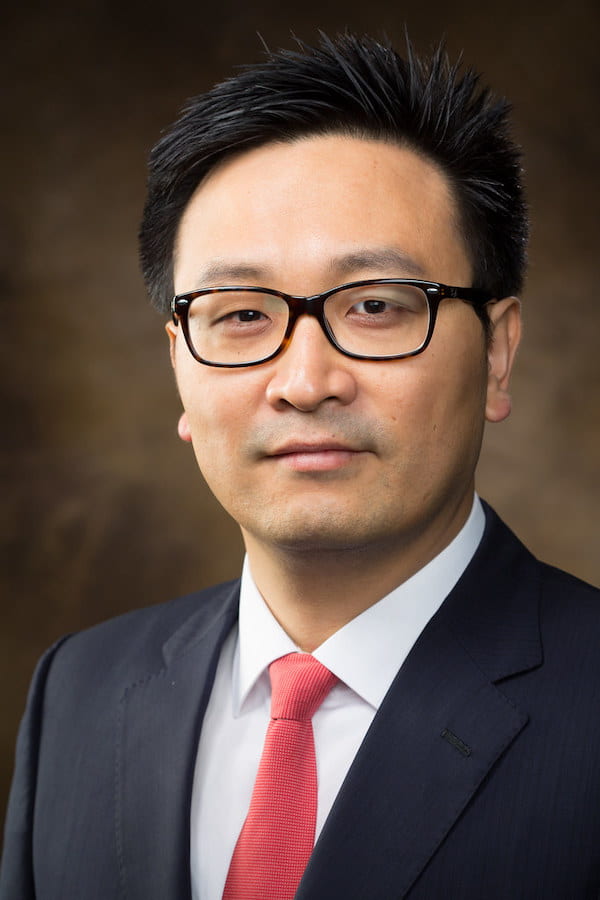
Korean food is gaining popularity in the U.S. (Image by changupn via Pixabay).
Korean culture
Though Koreans have been in the U.S. for more than a century, aspects of Korean culture have recently risen in popularity such as the Korean pop music known as “K-Pop,” from groups like BTS, and “K-Dramas,” including the Netflix series “Squid Game.” Korean cuisine has followed suit. According to The Food Institute, interest in Korean food rose 90 percent in the 12 months before Jan. 2022.
Arkansas and South Korea share some similarities, Seo said, including a focus on rice and chicken as foods, and four distinct seasons. Korean-style fried chicken was selected as the favorite Korean food outside of Korea, according to a recent survey by Korea’s Ministry of Agriculture, Food and Rural Affairs and its affiliated Korean Food Promotion Institute. Kimchi, a traditional Korean dish with salted and fermented vegetables, was the most well-known Korean food but not the favorite dish of international consumers, the survey noted.
In terms of recognizability, kimchi was followed by bibimbap, which is rice mixed with meat, vegetables, and spicy pepper paste; Korean-style fried chicken; bulgogi, marinated grilled meat; and gogigui, barbecued meat. When asked about their perceptions of Korean food, respondents called it “savory,” “reasonably priced,” “popular,” and “recently trendy.”
With 60 percent of the 9,000 respondents in 18 major international cities saying they know Korean food “well,” the survey indicates a growing familiarity with the nation’s cuisine.
In a symbolic gesture, the Global Center for K-Food was founded on the 2023 winter solstice, the year’s shortest day, signifying “new beginnings and the promise of a brighter future ahead,” Seo said.
“Just like many major corporations that originated in garages, the Global Center for K-Food too had its humble beginnings in a small corner of my lab,” Seo added. “However, this center is destined to expand into an international nexus for showcasing and exploring K-Food, along with its associated technology and culture.:
Growth of the center is expected to be fueled by interdisciplinary and international partnerships involving students, staff, faculty and professionals from the University of Arkansas System and various other institutions and countries.
“The essence of such interdisciplinary, diverse and harmonious collaborations is reflected in the center’s logo, which portrays a bowl of colorful bibimbap,” Seo said, expressing his dedication.
In bibimbap, the term “bibim” signifies “mixing,” while “bap” refers to cooked rice, symbolizing a harmonious blend of cooked rice intermingled with meat, various vegetables, spicy pepper paste, and a touch of sesame oil, creating a colorful and flavorful culinary experience.
To learn more about Division of Agriculture research, visit the Arkansas Agricultural Experiment Station website: https://aaes.uada.edu. Follow us on 𝕏 at @ArkAgResearch and Instagram at @ArkAgResearch.
To learn about Extension Programs in Arkansas, contact your local Cooperative Extension Service agent or visit https://uaex.uada.edu/. Follow us on 𝕏 at @AR_Extension.
To learn more about the Division of Agriculture, visit https://uada.edu/. Follow us on 𝕏 at @AgInArk.
About the Division of Agriculture
The University of Arkansas System Division of Agriculture’s mission is to strengthen agriculture, communities, and families by connecting trusted research to the adoption of best practices. Through the Agricultural Experiment Station and the Cooperative Extension Service, the Division of Agriculture conducts research and extension work within the nation’s historic land grant education system.
The Division of Agriculture is one of 20 entities within the University of Arkansas System. It has offices in all 75 counties in Arkansas and faculty on five system campuses.
The University of Arkansas System Division of Agriculture offers all its Extension and Research programs and services without regard to race, color, sex, gender identity, sexual orientation, national origin, religion, age, disability, marital or veteran status, genetic information, or any other legally protected status, and is an Affirmative Action/Equal Opportunity Employer.
Korean food is gaining popularity in the U.S. (Image by changupn via Pixabay).

